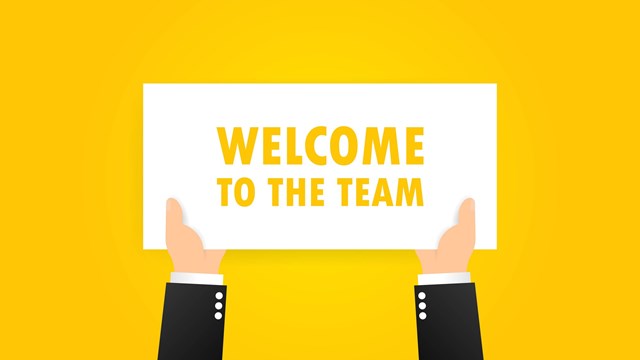
As the condo and HOA market continues to heal after the setback it experienced during the most recent financial crisis, many management firms and independent association managers are looking for ways to distinguish themselves from their colleagues and stand out in an increasingly tough market. The competition to manage some of the world’s priciest buildings is intense.
“There is definitely a greater level of competition out there,” notes Paul Santoriello, the president of Taylor Management Company, which has offices in New Jersey. “The total level of professionalism in the industry has gone up significantly. You're seeing individuals with a lot more experience, and management companies with a lot more experience. The level of education in the industry has gone up significantly.”
Ira M. Cantor, the chairman and CEO of Premier Management Associates in Englewood Cliffs, New Jersey, also feels there's “much more competition,” and that association boards and residents expect more now from their managers.
The Impact of Technology
Clearly, technology is one area of knowledge that managers must now learn and maintain. As in most professions, increasing technology has had an immense effect on association management. “One of the bigger trends that I've seen is that technology has taken on a much bigger role in our industry,” observes Santoriello.
The effects of the technology boom build on each other and branch out in numerous ways. Kelly Voicheck, executive director of Property Owners Association of New Jersey, adds that in today’s world, “you have to have a good grasp on technology, and work smarter to get more done. The workload is growing, and by implementing some of the tools available at a nominal cost, you can do far more with ease than you could years ago. Everything moves very quickly.”
In addition to facilitating speedier work than ever before and making fast operations the norm, technology allows more communication with boards and other residents, and in turn increases their expectations. Association managers must make information accessible to shareholders and unit owners who expect access, thanks in part to their extensive use of the Internet.
“The biggest thing that we have seen is that obviously technology has ramped up our ability to serve our clients and communicate and touch base with our clients. That's a big thing,” notes Santoriello.
“Communication is a key component to management,” agrees Voicheck. “I think that managers and boards want to know more. They are interested in taking an active role in the group they are vested in.”
“It is also important to have a web presence and effectively manage it,” she continues. “Constantly updating the information on your site and ensuring that it is mobile-friendly was not on the radar for us 10 years ago, and now it is essential.”
Also, the web has helped usher in an era of greater transparency in the management of communities. Residents want to see what's going on in their association, as well as legal and legislative developments that could impact it. There’s no excuse for a management company to not have fast access to that information and seeing that their clients do, too, either through an online community bulletin board, a community website accessible only by owners and staff, email newsletters, or other means.
The Multifaceted Manager
Technology has also facilitated the expansion of the knowledge necessary to be an effective manager. While association managers have had to be sharp generalists always, capable of handling diverse tasks simultaneously, these days they must be familiar with many professions, as well.
The degree of professionalism necessary in various aspects of association management, such as accounting and finance, has risen dramatically with the cost of square-footage. While, in the past, a management company could get away with collecting fees, paying expenses, and calling it a day…but those times are long gone. These days, pros must know much more.
Santoriello thinks the impact of technology is felt “predominantly within the accounting systems.”
“With the click of a button, you can share spreadsheets and data, and receive valuable input from several people quickly,” adds Voicheck. “Transparency regarding a building’s financial statements, and other sensitive information that should be available to owners, is a given. The effort that every firm should make includes simple things, too, like providing automation of payments.
Nowadays, managers are often expected to run their buildings' financial outlooks on a five-year cycle. After all, the overall health and wealth of the building is truly important. An association management firm should always be striving to improve the financial health of client buildings.
In the present competitive climate, if a management company isn’t helping the board to achieve its financial goals, board members could decide to find a new manager. “One of the things we are seeing is more communities getting involved in is pursuing loans,” notes Santoriello. “So that's an area that we are getting ourselves involved in that we didn't get involved in before.”
The boards, and other residents who want to be well-informed, need to have the wherewithal to understand the management company’s accounting practices and procedures. The managers aren't the only ones who need transparency.
The same forces that make this knowledge relevant to managers and boards also make members of those professions more likely to specialize in associations. “I think that one of the major things that you see now that you didn't see years ago is a lot more professionals specializing in our industry. Whether it be attorneys, whether it be engineers, whether it be insurance brokers, you see a significant change. We also see the banking industry playing a large role in our industry where we didn't see it before.”
How to Stay Well-Versed
Obviously, education is more necessary than ever. “We have programs to teach, internally and externally, our managers in order to be up to date,” Cantor says. “All our managers must be certified and take all CAI courses, which we pay for.”
CAI, for example, offers several different levels of certification that range from managing community associations to accrediting companies that specialize in community association management. Some of the available accreditation titles include Certified Manager of Community Associations (CMCA), Professional Community Association Manager (PCAM), Association Management Specialist (AMS), and Large Scale Manager (LSM).
“I also firmly believe that we all need to continue to learn and grow in our positions,” Voicheck says. “Nothing is static, nor should we be. We need to network with other people in similar positions so that we know how others do things, and can gauge what works and what does not. We need to belong to trade associations and take courses to evolve and grow. This will enable us, as well as our board, to not only do the job better, but bring more to the table for the association.”
Increasingly, management companies help boards keep up, as well. About Taylor Management, Santoriello says, “We not only provide education to our managers through multiple sources—obviously internally through education and training, through professionals in related industries, and through professional organizations—but additionally we have become more and more involved in the training of board members.”
“We just recently had a board member training program where we had, probably, 400 to 500 board members, and where we brought a number of professionals within the industry, along with myself and a number of leaders within our organization, to provide board members with training and knowledge so that they could take advantage of what we have to offer to help them do their jobs better,” he continues. Although his company has always helped to educate board members, Santoriello says: “Over the past five years or so, we've seen it become more of a formal process.”
Any management company worth its salt should commit to keeping staff well-honed and its boards up to date. Training can be completed in-house, or through organizations like local colleges or professional organizations.
The smartest managers know there are always lessons unfolding. Voicheck's advice to those who want to keep up in a competitive market is this. “Never stop learning and don’t be resistant to change. The only way to keep up is to keep learning and growing.”
Staff writer Judy Hill contributed to this article.






Leave a Comment